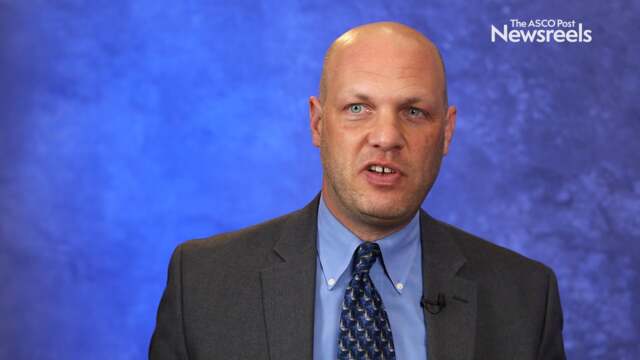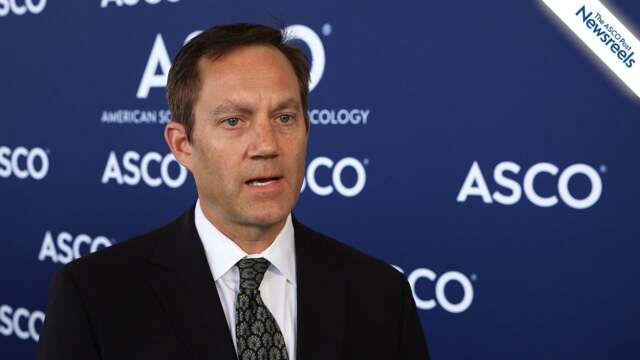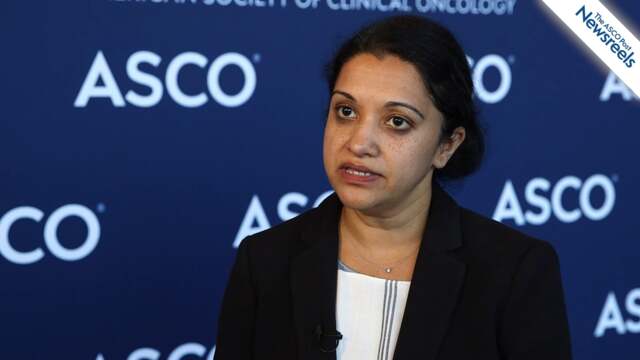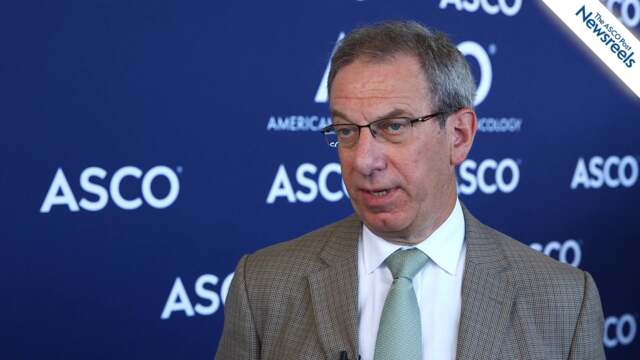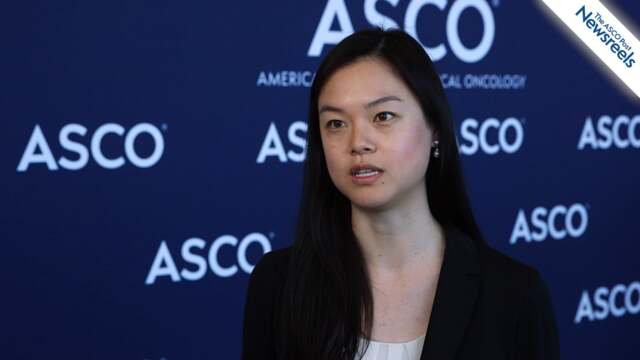Naoki Furuya, MD, PhD, on NSCLC: Results From the NEJ026 Study
2018 ASCO Annual Meeting
Naoki Furuya, MD, PhD, of the St. Marianna University School of Medicine, discusses phase III study findings on a comparison of bevacizumab plus erlotinib to erlotinib in patients with untreated non–small cell lung cancer with activating EGFR mutations (Abstract 9006).
Thaddeus Mason Pope, JD, PhD, of the Mitchell Hamline School of Law, discusses implications of the federal “Right to Try” law, recently enacted.
Robert M. Jotte, MD, PhD, of Rocky Mountain Cancer Centers, discusses phase III study findings on atezolizumab plus carboplatin plus paclitaxel or nab-paclitaxel vs carboplatin plus nab-paclitaxel, as first-line therapy in advanced squamous non–small cell lung cancer (Abstract LBA9000).
Supriya G. Mohile, MD, of the University of Rochester Medical Center, discusses study findings on ways to improve communication with older cancer patients using geriatric assessment (Abstract LBA10003).
Peter Hillmen, MB, ChB, of St James’s University Hospital, discusses phase III study findings on minimal residual disease negativity with venetoclax plus rituximab in relapsed or refractory chronic lymphocytic leukemia (Abstract 7508).
Sherry Shen, MD, of Columbia University Medical Center, discusses findings on the use of omega-3 fatty acid for obese breast cancer patients with aromatase inhibitor–related arthralgia (Abstract 10000).
